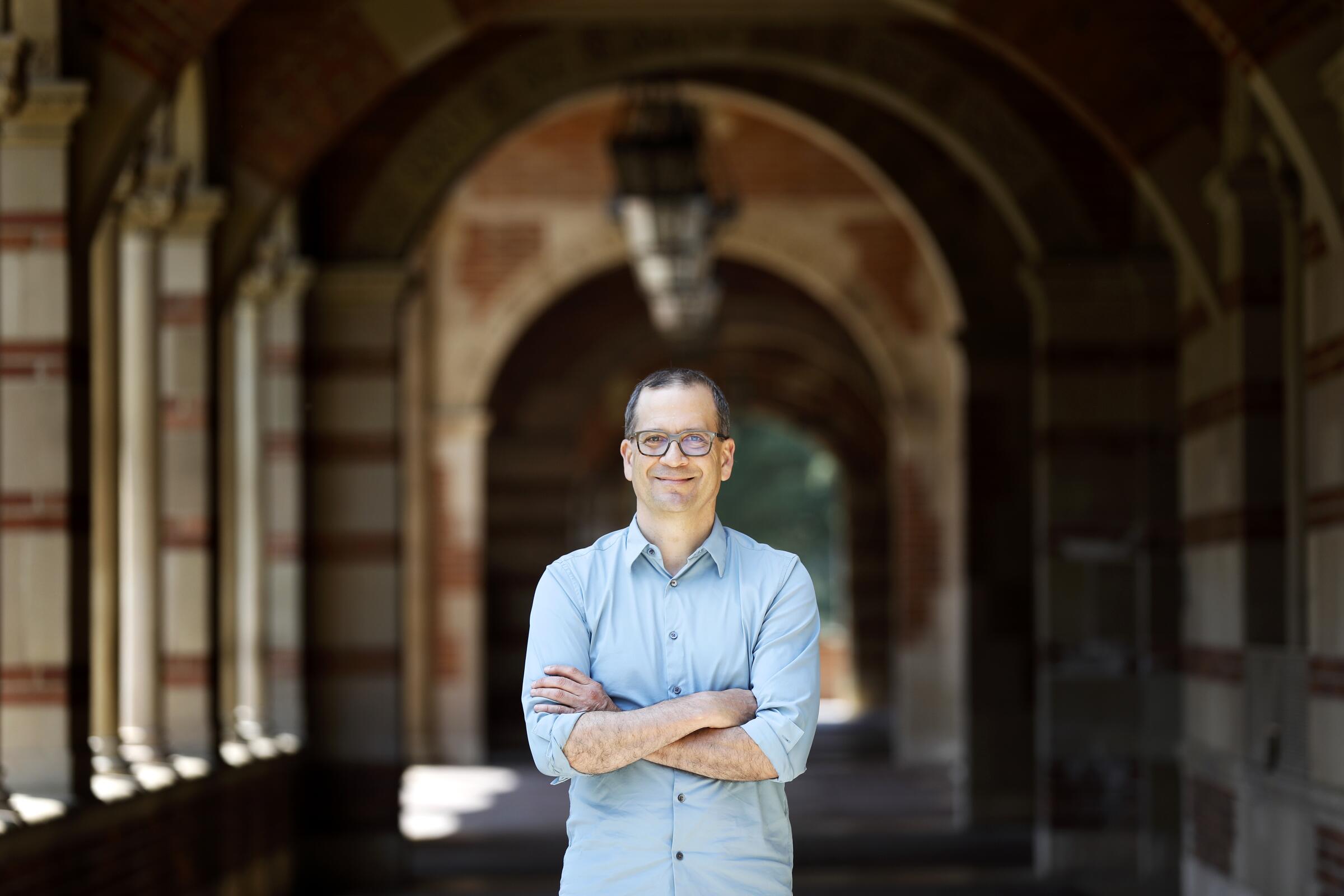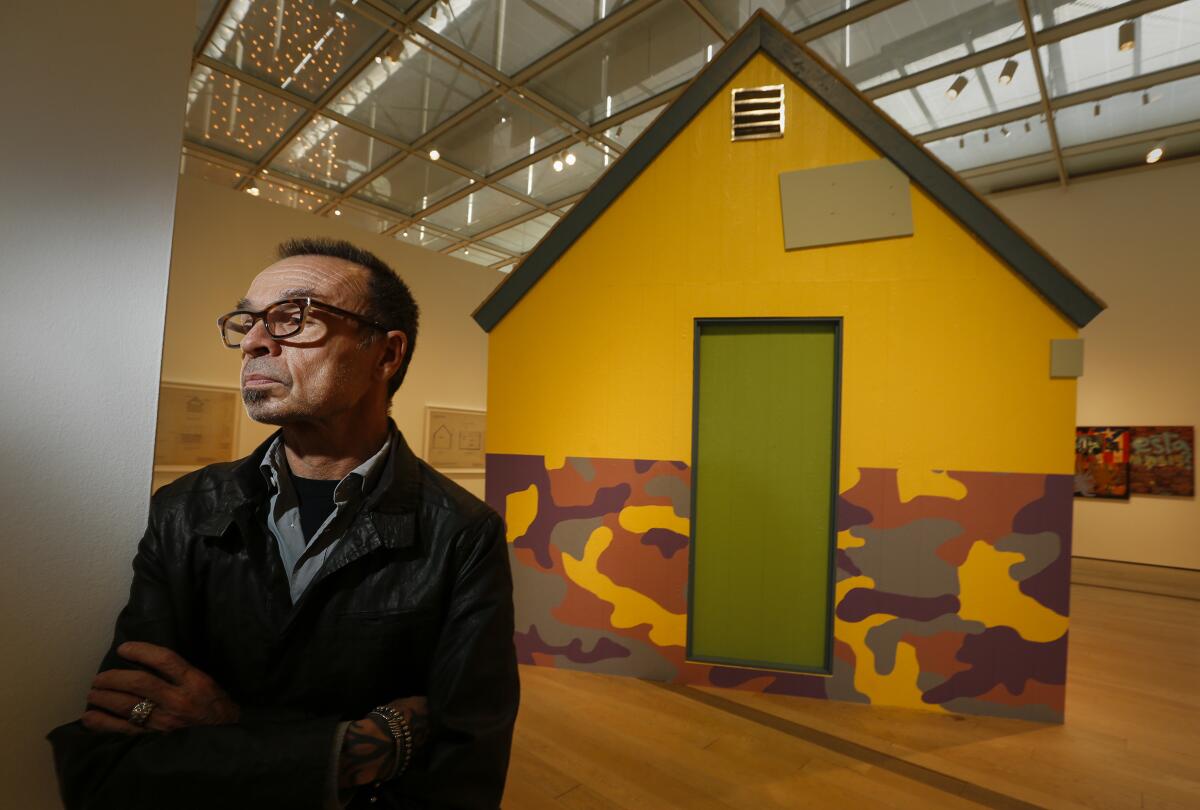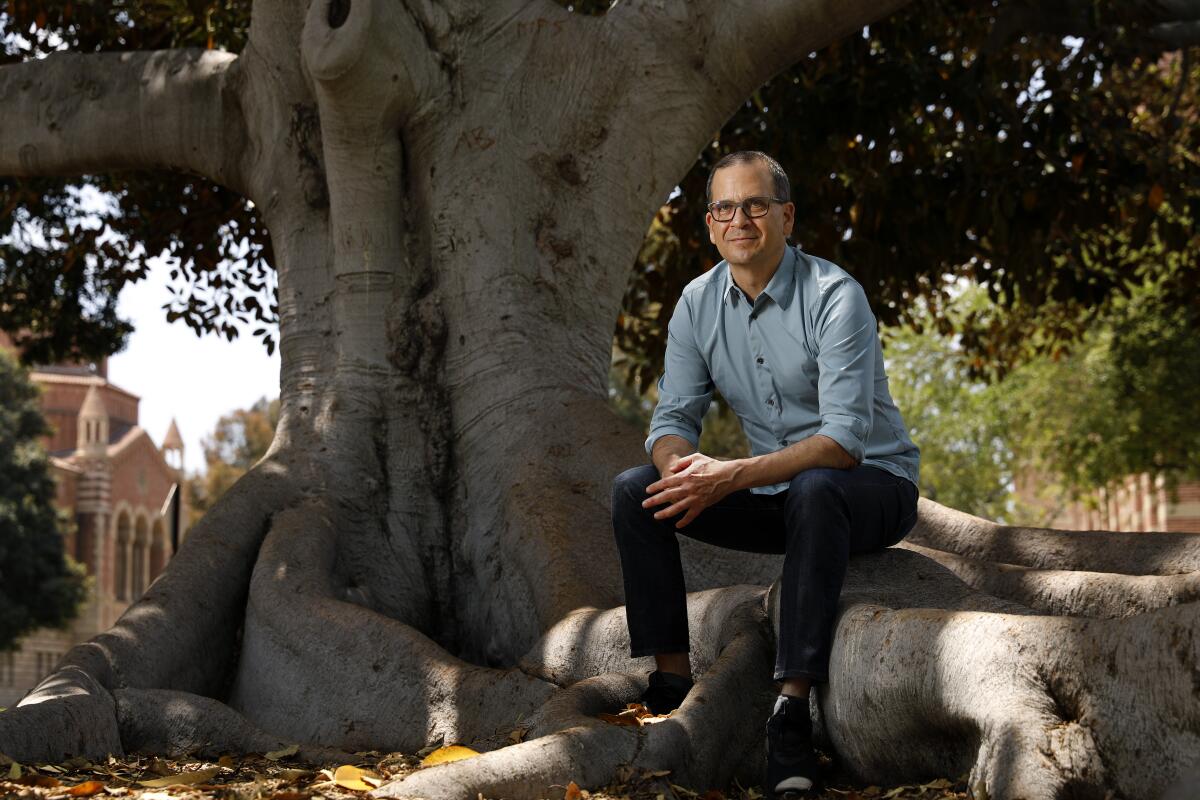The year was 1969. It was a time of social protest over civil rights and representation issues. Those protests echoed at UCLA, where Mexican American students were demanding improved access to higher education, as well as greater resources devoted to the study of the Mexican experience in the U.S.
Enter the university’s Mexican American Cultural Center, which was established to support research in what was then the new field of Chicano studies. In the 52 years since, that center — now known as the Chicano Studies Research Center (CSRC) — has grown from a small student- and faculty-led initiative to a full-blown academic center, supporting original research and publications, the maintenance of archival collections and a library.
Running the center for the last 19 years has been Chon Noriega, a professor in UCLA’s department of film, television and digital media, who has been a tireless advocate of Chicano representation.
Key archives connected with figures such as Edward Roybal, who in 1949 became the first Latino elected to L.A.’s City Council since 1881 (and later a U.S. representative), as well as caches of historic documents and photographs related to publications such as the Spanish-language daily La Opinión and the 1960s-era activist newspaper La Raza (which generated an exhibition at the Autry Museum of the American West), are some of the acquisitions Noriega was instrumental in bringing to the research center.
He helped launch “A Ver,” an artist monograph series that has chronicled the work of important Latino artists such as Pepón Osorio, Judith F. Baca, Carmen Lomas Garza and Gronk (born Glugio Nicandro).
He also helped curate key exhibitions related to Chicano and Latino art. Among them, the highly influential “Phantom Sightings: Art After the Chicano Movement,” which he organized with Rita Gonzalez and Howard Fox in 2008, as well as “Home — So Different, So Appealing,” a group exhibition of international artists, executed with Mari Carmen Ramírez and Pilar Tompkins Rivas — both shown at the Los Angeles County Museum of Art.
Now, after 19 years, Noriega is stepping down as director of the Chicano Studies Research Center (though he will remain on the faculty at UCLA). In this conversation — which has been edited for length and clarity — he looks back at the work of two decades: the important acquisitions, the fiery memo he once sent to leadership at New York’s Whitney Museum and that time a movie director he’d spent years trying to track down showed up at his house with the last remaining print of a rare Chicano film.











